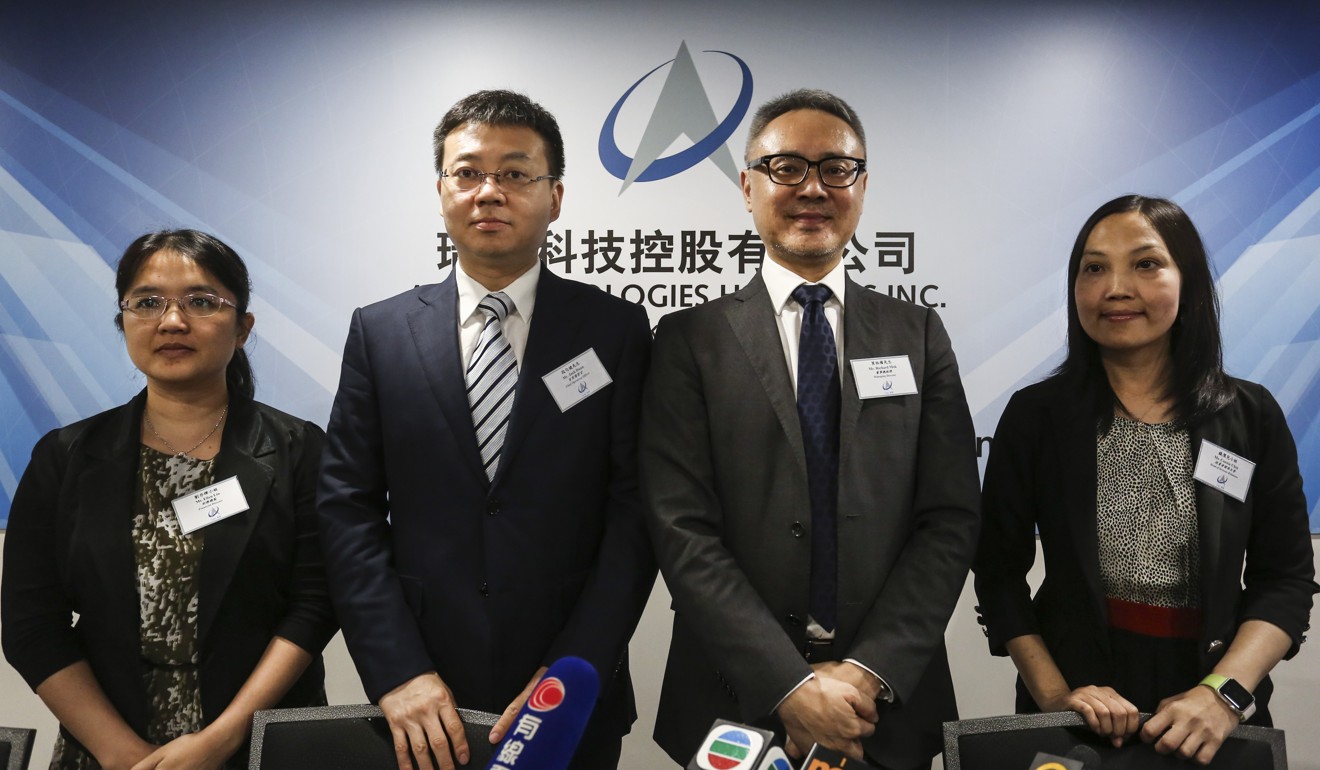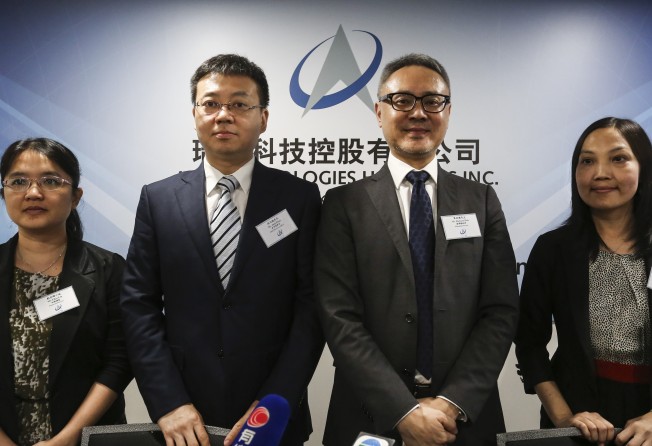
Apple supplier AAC posts record first-half earnings on smartphone industry upgrades
Shenzhen-based AAC Technologies expects optical business to become company’s next growth driver on demand from international and Chinese brands

AAC Technologies Holdings, a major supplier of miniature electronics components to Apple, Samsung Electronics and large Chinese mobile phone brands, posted record interim profit and revenue on the back of advanced hardware upgrades being undertaken across the global smartphone industry.
Managing director Richard Mok Joe-kuen said in a press conference on Friday that the company was gearing up to expand aggressively in the optics market segment, where Taiwan’s Largan Precision and Hong Kong-listed Sunny Optical Technology are large suppliers of camera modules and lenses.
“We need to position ourselves as an innovative technology leader,” Mok said.
Shenzhen-based AAC reported a 57 per cent jump in net profit to a new high of 2.1 billion yuan (US$315 million) for the six months ended June 30, up from 1.3 billion yuan in the same period last year, as operating expenses declined to 12.8 per cent from 14.7 per cent a year ago.
Total interim revenue rose 55 per cent to a record 8.6 billion yuan, compared with 5.6 billion yuan a year earlier, on strong sales at both its acoustic and non-acoustic component business segments.
AAC said its top five customers accounted for 89 per cent of its total revenue.
Its shares advanced 3.3 per cent to reach HK$123.30 at the close of trading in Hong Kong on Friday.
Jefferies equity analyst Rex Wu said positive signals from AAC’s results included expanding speaker box sales and the ramp-up in optical lens capacity to more than 10 million units a month, ahead of the company’s original estimate.
The acoustics business of ACC represents so-called dynamic components, which are the components that actively produce sound. These include miniature speaker modules, speakers and receivers used in the iPhone, iPad and Apple Watch.

AAC’s non-acoustic business includes radio frequency mechanical products that combine antennas with metal casing solutions, as well as proprietary haptics vibrators used in those same three Apple products.
Haptics refers to the technology used in mobile phones, tablets and smartwatches that enable a user to feel a tactile sensation when interacting with an application.
In AAC’s regulatory filing on Friday, chairman Koh Boon Hwee said the company “has established research and manufacturing platforms for proprietary optics technology, covering design, precision mold manufacturing to assembly processes”.
Its optical lens sets are currently produced at two factories in Suzhou, a city located in southeastern Jiangsu province.
Following the completion of a new manufacturing plant in Changzhou in the same province, AAC can potentially install total monthly capacity of 90 million to 100 million lens sets by the end of next year, according to Huatai Research analyst Ken Hui.
He pointed out that Apple has already qualified a glass-and-plastic hybrid lens solution from AAC for its upcoming new iPhones.
“AAC’s [lens] products have already penetrated all of the largest Chinese smartphone makers, including Huawei Technologies, Oppo, Vivo and Xiaomi,” Hui said.
Data from research firm IDC showed that global smartphone shipments totalled 689 million units in the first half of this year.